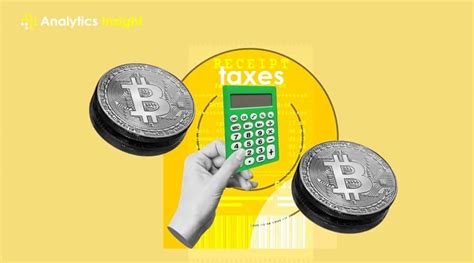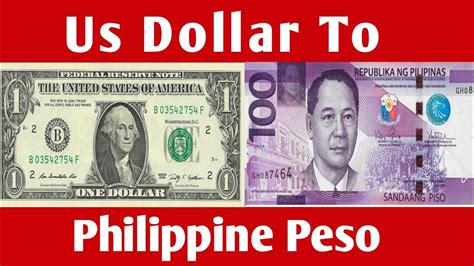South Korea’s currency, the won, has been experiencing significant fluctuations against the US dollar in recent years. The exchange rate between the won and dollar is a key indicator of the relative strength of the two currencies and plays a crucial role in international trade and investment.

Factors Affecting the Exchange Rate
Several factors influence the exchange rate between the won and the dollar, including:
-
Economic growth: Strong economic growth in South Korea, characterized by rising gross domestic product (GDP) and low unemployment, tends to strengthen the won against the dollar.
-
Interest rates: The Bank of Korea (BOK) sets interest rates to manage inflation and economic growth. Higher interest rates in South Korea attract foreign investment, leading to an appreciation of the won.
-
Trade balance: A surplus in South Korea’s trade balance, indicating more exports than imports, typically strengthens the won. In contrast, a trade deficit weakens the won.
-
Political stability: Political uncertainty or geopolitical tensions can lead to a depreciation of the won as investors seek safer assets.
-
Global economic conditions: The strength of the US economy and the global demand for the dollar can also impact the exchange rate.
Historical Trends and Projections
Historically, the won has experienced periods of appreciation and depreciation against the dollar. In 2022, the won depreciated significantly, reaching a record low of 1,393.3 won per dollar in November. However, it has since rebounded slightly.
According to a survey by the Korea Economic Research Institute, the average exchange rate forecast for 2025 is 1,250 won per dollar. This projection assumes a continued recovery in the South Korean economy, coupled with a gradual tightening of monetary policy by the BOK.
Implications for Businesses and Individuals
The exchange rate between the won and the dollar has implications for businesses and individuals. Companies engaged in international trade may face currency exchange risks if their revenue or expenses are denominated in a different currency. Similarly, individuals planning to travel or invest abroad need to consider the exchange rate fluctuations and their potential impact on their finances.
Strategies for Managing Currency Risk
Businesses and individuals can employ strategies to manage currency risk and mitigate potential losses. These strategies include:
-
Forward contracts: A forward contract allows a company to lock in an exchange rate for a future transaction, reducing the impact of fluctuations.
-
Currency hedging: Hedging involves using financial instruments, such as options or swaps, to offset the risk of unfavorable exchange rate movements.
-
Diversification: Diversifying investments across different currencies can reduce the overall risk associated with currency fluctuations.
FAQs
-
What is the current exchange rate between the won and the dollar?
As of February 23, 2023, the exchange rate is approximately 1,200 won per dollar.
-
What factors are currently affecting the exchange rate?
The ongoing global economic uncertainty and the BOK’s monetary policy are key factors influencing the exchange rate.
-
What is the expected exchange rate for 2025?
According to expert projections, the average exchange rate for 2025 is estimated to be around 1,250 won per dollar.
-
How can I protect myself against currency fluctuations?
Consider using strategies such as forward contracts, currency hedging, or diversification to manage currency risk.
-
What are the potential implications of a strong or weak won?
A strong won can make imports cheaper but may hurt exporters, while a weak won can boost exports but increase import costs.
-
How does the exchange rate affect tourism and investment?
A favorable exchange rate can make travel and investments abroad more affordable, while an unfavorable exchange rate can limit these activities.
Conclusion
The exchange rate between the won and the dollar is a dynamic indicator that affects businesses and individuals alike. Understanding the factors influencing the exchange rate and employing appropriate risk management strategies can help mitigate the potential impact of currency fluctuations and optimize financial outcomes. As South Korea’s economy continues to evolve and the global landscape remains uncertain, monitoring the exchange rate and adapting to changing conditions will be crucial in 2025 and beyond.
Table 1: Historical Exchange Rates between the Won and the Dollar
| Year | Exchange Rate (Won per Dollar) |
|---|---|
| 2015 | 1,132 |
| 2016 | 1,178 |
| 2017 | 1,108 |
| 2018 | 1,096 |
| 2019 | 1,190 |
| 2020 | 1,226 |
| 2021 | 1,197 |
| 2022 | 1,393 |
| 2023 (Feb) | 1,200 |
Table 2: Expert Projections for the Exchange Rate in 2025
| Institution | Exchange Rate Projection (Won per Dollar) |
|---|---|
| Korea Economic Research Institute | 1,250 |
| Samsung Economic Research Institute | 1,280 |
| Hyundai Research Institute | 1,230 |
| Bank of Korea | 1,260 (mid-point) |
Table 3: Factors Affecting the Exchange Rate between the Won and the Dollar
| Factor | Effect on the Exchange Rate |
|---|---|
| Economic growth | A strong economy tends to strengthen the won. |
| Interest rates | Higher interest rates in South Korea attract foreign investment, strengthening the won. |
| Trade balance | A surplus in the trade balance strengthens the won. |
| Political stability | Political uncertainty can weaken the won. |
| Global economic conditions | A strong US economy and global demand for the dollar can weaken the won. |
Table 4: Strategies for Managing Currency Risk
| Strategy | Description |
|---|---|
| Forward contracts | Lock in an exchange rate for a future transaction. |
| Currency hedging | Use financial instruments to offset the risk of unfavorable exchange rate movements. |
| Diversification | Invest in different currencies to reduce overall currency risk. |



